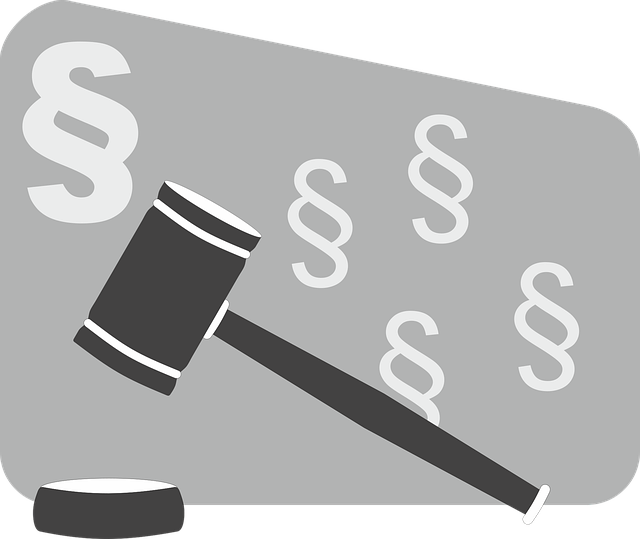Regulatory fraud laws protect the public from deceptive practices, offering a framework for penalties and post-conviction relief options for felons. Skilled attorneys use these laws to secure fair verdicts. After conviction, felons can seek relief through appeals, collateral review, and habeas corpus petitions. Expungement and record sealing provide a fresh start, while restorative justice offers an alternative to traditional incarceration. Real-life cases show successful post-conviction relief for white-collar criminals, ensuring fairness and a just society.
Regulatory fraud laws are designed to protect the integrity of governmental systems by penalizing individuals who manipulate or deceive regulatory bodies. This article explores various aspects of these laws, including definitions, post-conviction challenges, expunction options, restorative justice models, and inspiring success stories. For those seeking post-conviction relief options for felons, understanding these legal pathways is crucial to navigating a path towards recovery and rebuilding lives.
- Understanding Regulatory Fraud Laws: Definitions and Scope
- Post-Conviction Challenges: Navigating Legal Options
- Expunction and Sealing Records: Path to Recovery
- Restorative Justice: Alternatives to Incarceration
- Success Stories: Real-Life Examples of Relief Achieved
Understanding Regulatory Fraud Laws: Definitions and Scope

Regulatory fraud laws are designed to protect against deceptive practices that harm the public interest and undermine the integrity of various industries. These laws encompass a wide range of activities, from misrepresenting financial information to falsifying data in regulated sectors like healthcare and finance. Understanding these laws is crucial for businesses, professionals, and individuals alike, as they offer clear guidelines on what constitutes fraudulent behavior and the subsequent penalties.
In the context of criminal justice, regulatory fraud laws play a significant role in providing post-conviction relief options for felons. A skilled attorney can navigate these complex legal landscapes, helping his clients win challenging defense verdicts through strategic arguments and robust evidence. Jury trials, for instance, offer a platform to present compelling cases, ensuring fairness and the potential for favorable outcomes. This process is vital not only for securing justice but also for exploring avenues of relief that go beyond initial convictions.
Post-Conviction Challenges: Navigating Legal Options

After a conviction, individuals often face a complex landscape when pursuing post-conviction relief options for felons. This process involves navigating a series of legal avenues designed to address errors or injustices that may have occurred during their trial. The goal is to provide a fair resolution, especially in high-stakes cases involving white collar and economic crimes, where the consequences can be severe.
One key aspect is understanding the specific post-conviction relief options available, such as appeals, collateral review, and habeas corpus petitions. These mechanisms allow for the examination of trial proceedings and potential errors, with a focus on securing winning challenging defense verdicts. Legal professionals play a crucial role in guiding individuals through this process, ensuring their rights are protected and that they have access to all legitimate post-conviction relief options.
Expunction and Sealing Records: Path to Recovery

For many individuals who have been convicted of fraud-related offenses, the path to recovery and rebuilding one’s life can be challenging. One aspect that holds significant promise for those seeking post-conviction relief options is expungement and sealing records. These legal mechanisms offer a fresh start by essentially erasing or hiding past criminal records, allowing individuals to move forward without the lifelong burden of a conviction.
Expungement and record sealing are powerful tools in the realm of white collar defense, especially for those who have served their time and demonstrated reform. Across the country, there has been an unprecedented track record of success in implementing these practices, providing felons with opportunities to reclaim their lives. By removing barriers to employment, housing, and education, expungement can help individuals reintegrate into society, fostering a chance at a new beginning and breaking down societal barriers often associated with criminal records.
Restorative Justice: Alternatives to Incarceration

Restorative justice is an emerging approach that offers promising alternatives to traditional incarceration for white-collar offenses. In recent years, many legal experts have advocated for post-conviction relief options for felons, focusing on rehabilitation and reintegration rather than solely relying on punitive measures. This concept emphasizes healing and reconciliation among victims, offenders, and communities, which can be particularly effective in high-stakes cases involving corporate and individual clients.
By exploring restorative practices, the justice system can move away from a one-size-fits-all approach, offering tailored solutions that address the underlying causes of criminal behavior. This shift not only reduces recidivism rates but also promotes a more just and humane criminal justice system. It encourages offenders to take responsibility for their actions while providing opportunities for them to make amends and regain their place in society.
Success Stories: Real-Life Examples of Relief Achieved

In the realm of regulatory fraud laws, there are countless success stories—real-life examples where individuals have achieved post-conviction relief options for felons. These cases highlight the intricate work of white collar defense attorneys who navigate complex legal landscapes to secure justice for their clients. Across the country, various strategies have been employed to undo wrongful convictions, granting a second chance to those who’ve paid their debt to society.
One notable instance involves a businessman accused of securities fraud. Through robust legal representation and the presentation of new evidence, his conviction was overturned. This success not only underscores the importance of meticulous legal defense but also offers hope for others facing similar charges. Such victories demonstrate that even in cases where individuals have been found guilty, there are always post-conviction relief options available, ensuring a fairer system and a more just society.
In navigating the complexities of regulatory fraud laws, understanding the available post-conviction relief options is pivotal for felons seeking a fresh start. From legal challenges to expungement and restorative justice initiatives, various avenues offer hope for rehabilitation and reintegration. By exploring these alternatives, individuals can break free from the constraints of their past and reclaim their future, demonstrating that second chances are within reach.






